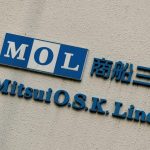Green shoots indicating a pick up in economic momentum in August have increased the confidence of international financial institutions which feel that China is on track to achieve its annual growth rate target of around 5 percent, with negative consumer inflation unlikely to reappear amid recovering demand.
However, uncertainties remain regarding how sustained the preliminary signs of a property market uptick will be, making more housing policy relaxation likely in the short term to ensure a robust recovery.
Zhu Haibin, JPMorgan’s chief China economist, said he has revised up his forecast for China’s economic growth in the second half of the year, given August’s better-than-expected economic numbers and a gradual feed-through of policy support, including the recent acceleration in special local government bond issuance that could boost infrastructure activity.
Zhu said he expects China’s full-year growth to touch 5 percent, an upgrade from the previous forecast of 4.8 percent, after the release on Friday of August’s growth figures for retail sales and industrial output that beat market expectations, up 4.6 percent and 4.5 percent year-on-year, respectively.
“We think the government will be able to achieve its (around) 5 percent growth target,” said Xiong Yi, Deutsche Bank’s chief China economist. “Recent high-frequency data on trade and prices are showing signs of stabilizing, while the acceleration of credit (expansion) in August was also encouraging.”
Policy adjustments in the real estate sector are likely to have a positive impact on property sales in first-tier and second-tier cities by spurring the housing demand from new migrants and other potential buyers, Xiong said, adding that China’s economic growth is expected to reach 4.6 percent year-on-year in the third quarter and improve to 5 percent in the fourth quarter.
The remarks came after the People’s Bank of China, the country’s central bank, met with foreign financial institutions and companies on Monday, as part of the country’s efforts to attract foreign investment and expand financial opening-up. Representatives of JPMorgan, HSBC, Deutsche Bank and Tesla were among those who attended the meeting.
As the Chinese economy has likely bottomed out, experts said the country’s inflation is also set to recover amid signs of increasing demand, after the consumer price index showed a positive growth of 0.1 percent in August on a yearly basis after a 0.3 percent drop in July.
“China certainly has very low inflation… However, it would be wrong to describe China as being in the grip of a deflationary spiral,” said Frederic Neumann, chief Asia economist and co-head of Global Research Asia at HSBC.
“Underlying demand is still growing and we haven’t seen the emergence of a deflationary mindset among producers and consumers,” Neumann said.
Nevertheless, experts cautioned that the Chinese economy is still waiting for a turnaround of the property market to see a full-blown recovery. “What remains to be seen, though, is whether these policy measures will be sufficient to lead to a sustained recovery in the property market,” said Xiong from Deutsche Bank.
Citing structural stresses in the property market, the Organization for Economic Cooperation and Development said in its latest economic outlook that China’s economy is expected to grow by 5.1 percent this year, 0.3 percentage points lower than its forecast in June.
Zhu, from JPMorgan, said more demand-side easing of housing policies may be in the offing in the near term. There could be relaxation of home purchase restrictions, sales restrictions and price controls in first-tier and second-tier cities.
Source: Hellenic Shipping News





